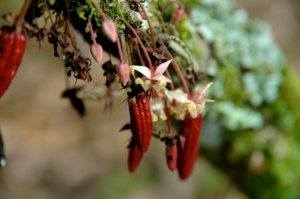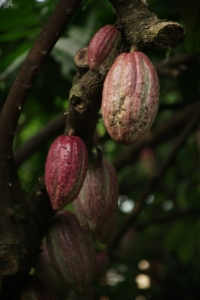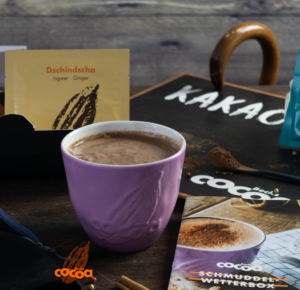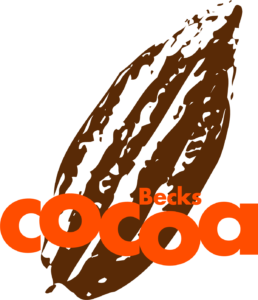Our cocoa – a real superfood?
Superfoods promise health benefits, and this can actually be confirmed for cocoa under certain conditions. What else is important to us for a food to really be a ‘superfood’ is what we would like to explain here.
First of all, there is no uniform or legally binding definition for the term superfood. According to the German Nutrition Society, for example, the buzzword covers foods that are particularly nutrient-rich – rich in vitamins, minerals and antioxidants – and therefore have a positive effect on health and well-being. Meanwhile, exotics like chia seeds, acai berries and moringa are vying for the attention and favor of conscious consumers with regional heroes like flaxseed, beet, rosehip or nettle. Cocoa sometimes attracts more, sometimes less attention.
Good for blood circulation
Yet raw cocoa – like that from BecksCocoa – is one of the best plant-based sources of magnesium, it contains more calcium than milk, plenty of iron, valuable unsaturated fatty acids and, last but not least, numerous vital antioxidants.
The latter in particular make cocoa a highly official superfood. According to its own study results, the EU Commission confirms the health effect of the flavanols richly contained in cocoa: Because they help to relieve the elasticity of the blood vessels and contribute to a normal blood circulation. With this knowledge, we may officially promote our products.
Why aren’t we jumping on the superfood bandwagon with our cocoa?
Because there are a few more things we care about. We think that a true ‘super food’ should not only be beneficial for individual health. It also has a proper impact on the environment and societies in its growing areas, and this impact should also be positive. In addition, a product should still be good according to objective criteria when it is finished. This is the case with our spiced cocoas.
Not because they contain other superfoods – like genuine Ceylon cinnamon, which gives our Sinnerman Forte so much profound sweetness that it no longer needs sugar. Or the all-rounder ginger, which gives our Djindjah just the right amount of warm spice.
What matters to us first and foremost: appreciation. For the ingredients used in our cocoas, which we have always purchased in organic quality as a matter of course. For the land on which they grow. In addition, we act in accordance with the official Fairtrade standards and support cooperatives and their employees, for whom our high quality standards enable continuous training and a secure and above-average income.
Appreciation, transparency and best taste – without frills
Last but not least, we are now officially a member of Slowfood, which says a lot about us: BecksCocoa stands for an artisanal way of production, which we will give an insight into here on the blog in the coming weeks. Our value chain is transparent. And our recipes are free of everything that is not necessary for the uniquely round taste of Becks Cocoa.
That means our spices and plant extracts always come directly from nature. We only use raw cane sugar for sweetening, but we can also do without it here and there, and we do not use any additives or flavorings. And if you’re wondering about the acidity regulator potassium carbonate on the labels of our sugar-free cocoas: It is contained in all commercially available drinking chocolate, but only has to be listed if the recipe does not contain sugar. We simply write everything on it that is in it.
But what is potassium carbonate actually? Nothing more than the potassium salt of carbonic acid, colloquially also called potash. It changes the pH value of the usually very fatty cocoa beans, so that the cocoa powder can also dissolve in cold milk. We simply don’t want to do without it. Because with all the effort around our favorite superfood, one thing should be quite simple: The enjoyment of a wonderfully fragrant cup of fine cocoa. Let yourself enjoy it – all naturally!





